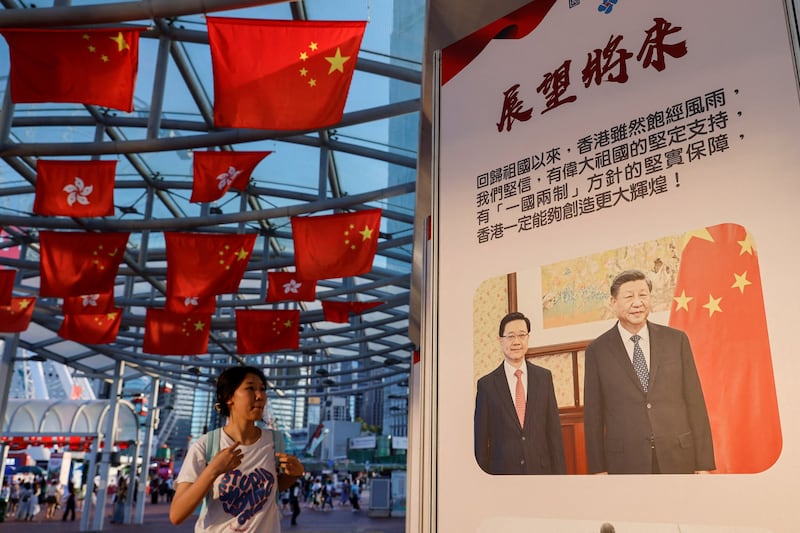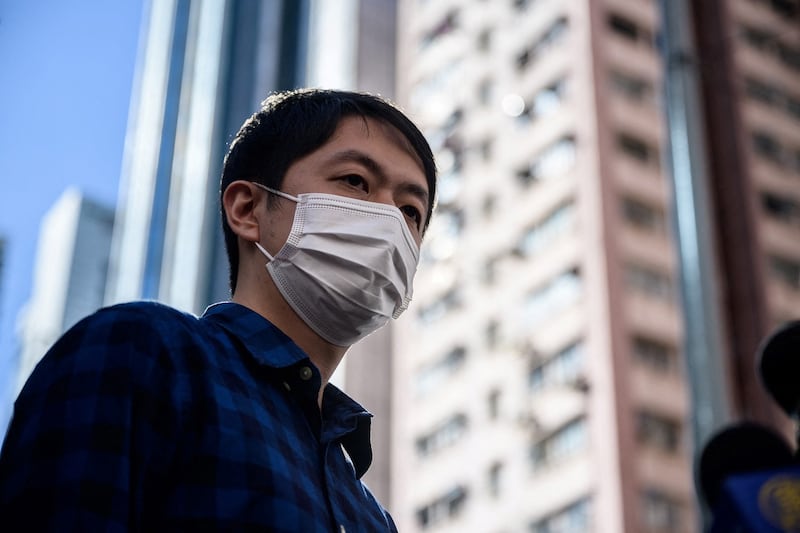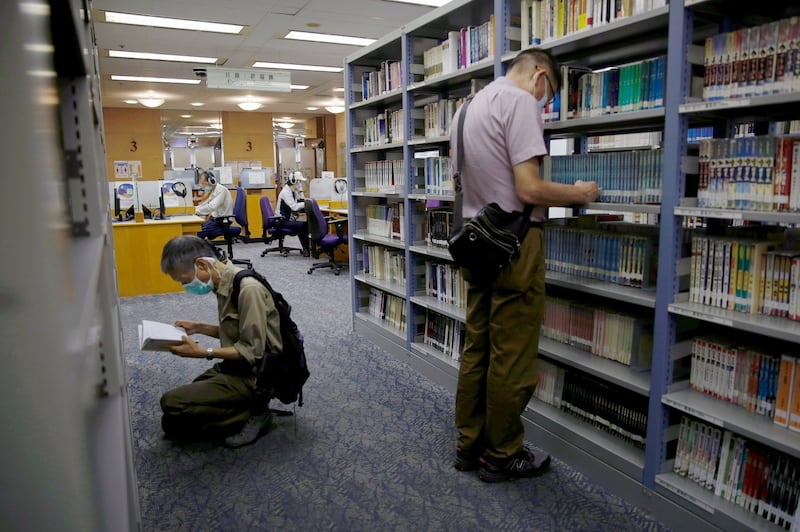UPDATED at 3:15 pm, July 17, 2023
The ruling Chinese Communist Party has taken more direct control over national security in Hong Kong from China's cabinet, the State Council, in a move commentators said is likely linked to a recent bid to pursue the city's democracy activists overseas and to harass their families.
The Hong Kong and Macao Work Office of the Communist Party's Central Committee is headed by Xia Baolong, who also headed its predecessor, according to a brief account of its July 11 meeting posted to its official website.
Its remit – according to plans passed by the National People's Congress in March – will be to "deploy the governing power of the central government" in Hong Kong and to "maintain national security," under a security law imposed on Hong Kong in July 2020 that criminalizes public criticism of the authorities by anyone, anywhere in the world.
The office is also charged with "supporting" the integration of both cities with the rest of China.

Its first publicized meeting comes days after Hong Kong's national security police issued arrest warrants and bounties for eight prominent overseas democracy activists, with the city's leader John Lee vowing to pursue them "for life."
The warrants were swiftly followed by five arrests in Hong Kong of people suspected of helping overseas activists, and the questioning of the parents and brother of U.K.-based former pro-democracy lawmaker Nathan Law.
U.S. response
As the office made its public debut, U.S. President Joe Biden extended the U.S. state of emergency with regard to Hong Kong.
In a July 11 letter to Congress, Biden said recent actions taken by Beijing "to fundamentally undermine Hong Kong's autonomy ... [continue] to pose an unusual and extraordinary threat" to U.S. national security.
Exiled former lawmaker Ted Hui, who is among the eight wanted activists, said the order to issue the arrest warrants had clearly come from Beijing.
"These concerted actions [the warrants, arrests and questioning of family members] were clearly ordered by Beijing," Hui told Radio Free Asia. "They may not be able to arrest us, but they can make things tough for our families."
"It's political law enforcement that uses people as hostages in a kind of psychological warfare," he said. "They've started by harassing Nathan Law's family, sending the message that if he doesn't submit to their will and keep quiet, they will take further action."

Current affairs commentator Sang Pu said the new, party-run Hong Kong and Macao Office will likely be running a "rectification" campaign in Hong Kong, which could mean that some heads will roll in the local administration.
"It has the spirit of [political] struggle – the more communist the better," Sang said. "Nobody in the Hong Kong government has said anything – they must think there's a crisis coming."
"Everything they do ... will be about demonstrating loyalty – it's a continuation of the spirit of the Cultural Revolution," he said.
Losing its uniqueness
Chen Li-fu, vice president of the Taiwan Association of University Professors, said Washington appears to want to step up pressure on China to ease off its political controls over Hong Kong.
"[Biden's] saying here that he doesn't think they have seen the error of their ways, so he's extending [the state of emergency] for one year ... but not forever, hoping they'll change their ways," Chen said.
There are signs that not everyone in the Chinese political establishment agrees with the current approach to dissent in Hong Kong.
A post by mainland Chinese blogger Jinghaihou -- a former columnist for a Beijing-backed newspaper in Hong Kong -- calling for an easing of the political crackdown in the city was recently allowed to remain online.
In it, the blogger argues that Hong Kong is losing its uniqueness under the national security law, saying there are fears the city has lost its luster, and that it's neither special nor a particularly attractive destination, and has been marginalized on the international stage.
The post cites the recent removal of books from the shelves of the city's public libraries, including work by revolutionary Chinese author Lu Xun.
"Since the implementation of the National Security Law in Hong Kong, a small number of people have gotten into the habit of overdoing the implementation of some policies ... of mechanically implementing the government's decisions ... to the point where Lu Xun is being taken off library shelves, and movies that have nothing to do with politics are no longer being shown," the blogger wrote.

"They always seek left over right, regardless of the consequences," the post said, blaming the local government for its "frivolous" use of the law to scare people.
The pro-China Sing Tao Daily newspaper also published an article on July 11 hitting out at local officials for their "excessive leftism" and calling for a balance between national security, and the need for investment, human rights and freedom.
"Some people [within the Chinese government] feel pessimistic and lack confidence in a Xi Jinping-style model for governing Hong Kong," mainland Chinese commentator Si Ling told Radio Free Asia.
"The fact that this article was published is a rebuke to Xi Jinping and a call for change, and also speaks to the influence of those whose views are represented in it," he said.
Current affairs commentator Johnny Lau said one or two articles are unlikely to change much, however.
"Unless there is a long period of easing back, one or two articles are hardly going to change anyone's perception of tightening controls," he said.
"Even if there are people in the central government who think a better balance needs to be found, those further down the hierarchy haven't gotten the memo," Lau said.
Translated by Luisetta Mudie; edited by Malcolm Foster.
Headline and lead have been revised to show that Communist Party is taking a greater role in security, not in day-to-day affairs.
